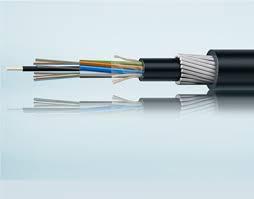Which Things You Need to Know About Armoured Cable?

Are you aware of the fact that what are armoured
cables & what are the essentials that you should know about the cables to
use them properly? If not properly, then here is the appropriate informational
post for you.
This post will help you with an in-depth look at
everything you need to know about armoured cable & Armoured Cable Suppliers, from their structure and types to their
applications and installation tips.
Let’s have a look at the details without any delay:
What is an Armoured Cable?
Armoured cable often refers to the SWA (Steel Wire
Armoured) & these are associated with the electrical cable company that has
the best as well as an amazing additional layer of protection. This layer
typically consists of steel wire or tape that safeguards the internal
conductors from all kinds of mechanical damage.
With this, let’s even have a look at the structure of
armoured cable to know more about everything in detail:
Structure of Armoured Cable
The construction level of this cable includes the
usage of several materials to be the several layers, such as:
Conductors: These are the core components that are usually made of copper & responsible for carrying all types of current load.
Insulation: This layer surrounds the conductors layer well & prevents electrical leakage to offer protection against shocks.
Bedding: After that, a layer of bedding material is used that covers the insulation & typically covers the PVC or polyethylene to add an extra layer of protection.
Armouring: This is the key feature as well as the layer that consists of steel wire or steel tape. The presence of these provides mechanical protection & results in enhancing the cable’s durability.
Sheath: This layer plays an important role because this protects the cable from different environmental factors like moisture, chemicals & UV radiation.
With the usage of the materials, let’s have a look at
different types that are designed by keeping different environments in
consideration:
Types of Armoured Cable
Steel Wire
Armoured Cable (SWA): This is the type that is commonly used in industrial
settings, & even used in those areas where cable is subject to mechanical
stress.
Steel Tape
Armoured Cable (STA): This type features steel tape instead of steel wire. Other
than this, these are used in applications where flexibility & ease of
installation are important.
Aluminum
Wire Armoured Cable (AWA): This is the one that is typically used for single core
cables where magnetic interference must be minimized & this type even
results in reducing the risk of interference.
Flexible
Armoured Cable: This type is designed for applications that require a high degree of
flexibility, to many types of equipment that are related to machinery or even
portable.
Benefits of Armoured Cable
Physical Protection: The metal armor shields the internal wires from damage, abrasion, and impact.
Durability: Armoured cable is more rugged and long-lasting compared to standard cable.
Improved Safety: The metal sheath helps prevent electric shocks and fires in case of cable damage.
Flexibility: Armoured cable can be used in a variety of environments, from industrial to residential.
Armoured Cable Installation
Preparation: Ensure the work area is safe and free of obstructions.
Routing: Plan the cable path to avoid sharp edges, heat sources, and other hazards.
Termination: Properly secure the cable ends and maintain the cable's integrity.
Armoured Cable Safety Considerations
Grounding: Ensure proper grounding to prevent electrical shocks and hazards.
Damage Prevention: Protect the cable from physical damage, moisture, and corrosion.
Compliance: Follow all relevant electrical codes and regulations during installation to not get into any kind of trouble that will make you regret your decision later.
Training: Only trained and certified professionals should work with Armoured cable.
Armoured Cable Maintenance
Inspection: Regularly check the cable for any signs of damage or wear.
Cleaning: Keep the cable and its surroundings free from dirt, debris, and moisture.
Repair: Address any issues promptly to ensure the cable's continued performance.
Replacement: Replace the cable if it shows signs of significant deterioration or damage.
Armoured Cable Regulations and Codes
|
National
Electrical Code (NEC) |
Provides guidelines for the safe
installation and use of Armoured cable. |
|
Underwriters
Laboratories (UL) |
Sets safety standards for Armoured
cable and related components. |
|
OSHA
Regulations |
Require proper use and handling of
Armoured cable to ensure worker safety. |
Armoured Cable Applications
Industrial Facilities: Armoured cable is widely used in factories, warehouses, and other industrial environments.
Commercial Buildings: Armoured cable provides reliable power and protection in commercial settings.
Residential Homes: Armoured cables can also be used in residential applications, such as wiring for homes.
Outdoor Environments: The durable construction of Armoured cable makes it suitable for outdoor use.
Conclusion
These cables act as a vital component in ensuring a safe & reliable
electrical installation for a variety of environments. So, whether you are
working on a large industrial project or a small one you should have an
appropriate knowledge of these to provide proper help to the clients.
But for this, if you are still looking to grab more knowledge as well as
information then you can schedule your appointment with our professional Armoured Cable Manufacturers
members now & achieve amazing success.
Also Read: What is High-Voltage Cable and What are The Interesting Uses?
Comments